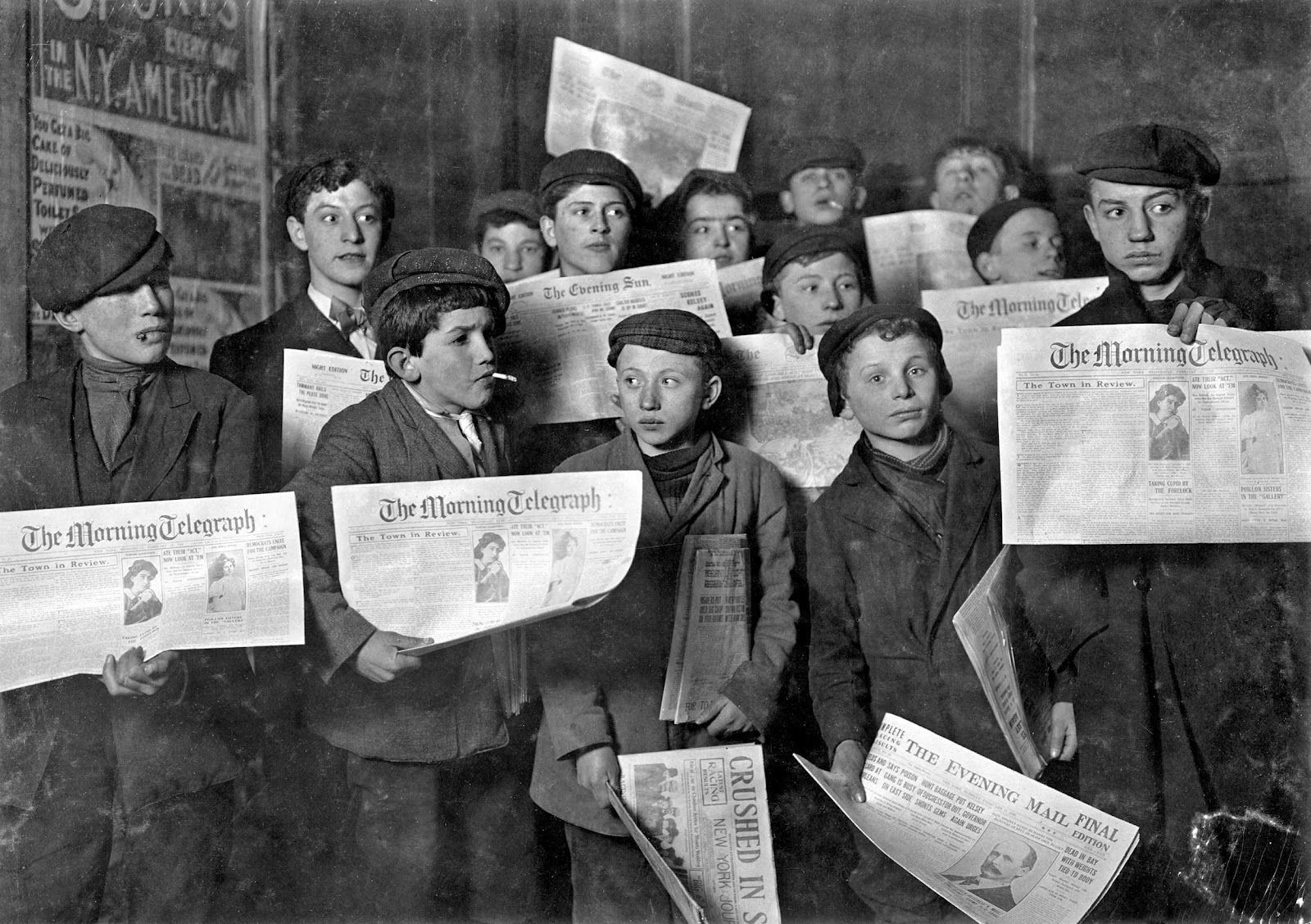Newsies extra credit post
The Broadway play, Newsies, dramatized the actual historical strike that took place in the summer of 1899 for two weeks. The actual strike was one of ten that took place in New York City between 1886 and 1948, but this one revolved around the pioneers of yellow journalism, Joseph Pulitzer and William Randolph Hearst, and how they refused to reduce the price of the papers for their carriers.
As the program stated, Joseph Pulitzer wasn’t even in the city when the strike occurred in 1899, nor did Governor Teddy Roosevelt intervene on behalf of the strikers (though he would do so as president in the coal mine strike in 1902). So it makes me wonder what is more important for a piece of entertainment – historical accuracy or riveting drama?
Also as the program mentioned, the Newsies strike is similar to some of the most recent strikes that have been going on across the country in the past two and a half years. Workers have increasingly gone on strike for lots of different reasons recently, and there are some definite parallels with the Newsies’ strike.
Lastly, there was an undercurrent of change, as portrayed by Katherine Plumber, who was trying to break into the very male-dominated world of reporting.
To get credit for this blog, please answer the first two questions and pick two of the several remaining questions to answer:
Required questions #1 and #2)
Find a recent strike that has occurred since January 2021 and do a little research. What were the main reasons why the workers went on strike? How did the economics of the past few years contribute to their working conditions? How was the strike resolved, if it was? Do you think the owners or the workers won in this strike you researched? Explain why.
2. How was the strike you researched in # 1 similar and / or different compared to the Newsies strike in 1899? Provide specific examples from both the play and the strike you examined.

Pick two of the following questions to answer in addition to the 2 above:
3. How had women’s roles changed in the time period we have been studying (1491-1840s)? Provide some specifics.
4. What were some reasons why the Newsies were reluctant to go on strike? How might those reasons influence modern workers to be reluctant to go on strike or join a union?
5. In the play, how did Pulitzer exercise his wealth and power to try and get Jack Kelly to undermine the strike? How can we see this exercise of wealth and power used by businesses and CEOs to squash strikes and unions today?
6. Was the play pro or anti union? Explain why with specific examples from the play.
7. Why did the children in the play have to go to work instead of being in school? How different or similar are those reasons to why children and teens work today?
Total answers for all 4 questions should be a minimum of 400 words.
Due Tuesday night, November 21, by midnight.

